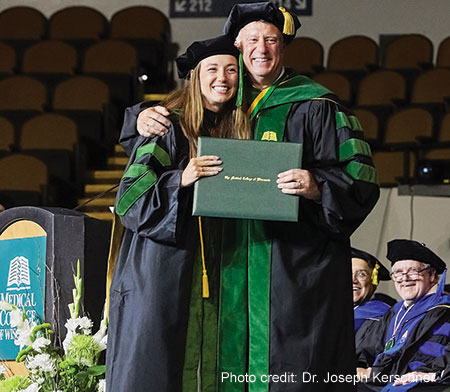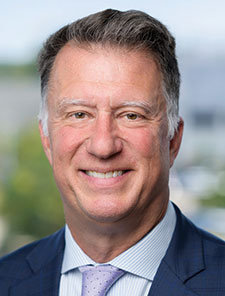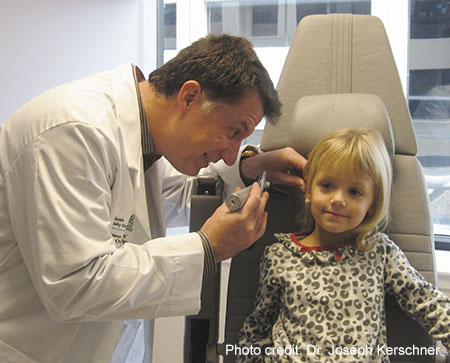It is rare for the first question a mentor asks when meeting with a mentee to be, “What can I do for you?” This unpretentious, generous style of leadership and mentorship is characteristic of Joseph Kerschner, MD.
Explore This Issue
August 2025At 60 years old, after a fruitful career as a clinician–scientist, medical school dean, and provost at the Medical College of Wisconsin, Dr. Kerschner is pivoting his career to join Chartis, a leading healthcare advisory firm. In his role as a senior strategic transformation partner, Dr. Kerschner will apply not only his clinical and research expertise but also his leadership experience guiding a health system and medical school to drive transformative change in healthcare. His inherent nature to lead by example and to elevate those around him through mentorship with a growth mindset—skills he honed early in his career as a bench researcher and pediatric otolaryngologist—are fundamental values Dr. Kerschner will carry forward in his new professional journey.

As the dean of the Medical College of Wisconsin, Dr. Kerschner handed his daughter Anna her medical school diploma.
With this next chapter, Dr. Kerschner brings to bear a steadfast commitment to impactful leadership and innovation in healthcare, principles that shine through in our interview. This interview was condensed and edited for clarity.
Dr. Rapoport: You’ve been committed to your medical and bench research throughout your entire career, and it’s clearly reaching an exciting point. Can you tell us more about your research and the breakthroughs you’re currently working on?
Dr. Kerschner: We’ve been focused on finding a way to deliver drugs to the middle ear through an intact tympanic membrane. For example, what if you could deliver an antibiotic or steroid to the middle ear space without puncturing the eardrum? That’s the question we’ve been working on for nearly two decades.
Early on, we conducted molecular studies, and over the past five years, we’ve advanced to animal models using a patented delivery system based on charged nanoparticles. These nanoparticles can carry biopharmaceutical cargo across the intact membrane to treat middle ear disease.
More recently, we’ve extended this work to consider inner ear conditions like sudden hearing loss and Ménière’s disease, where medication still needs to pass through the tympanic membrane. Normally, the eardrum—similar to any area of the body with skin—has tight junctions that make it incredibly difficult to deliver drugs without puncturing it or using a tympanostomy tube. But we figured out a way! Our method works in animal models, and we’re now preparing for phase one clinical trials.


Leave a Reply